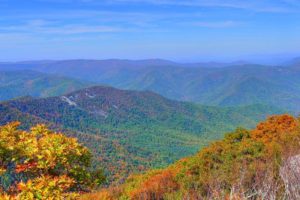3.3 million acres of our public land at risk
by Lillian Anderson
2-2-2017 UPDATE: Rep. Jason Chaffetz announced this morning that he is withdrawing this bill. Thanks to everyone who called and made comments.
Last Tuesday, Congressman Jason Chaffetz proposed HR 621. This bill will drastically impact our public lands if passed. It builds on the Disposal of Excess Federal Lands Act and aims to sell off upwards of 3.3 million acres of public land.
These targeted lands are based on a list generated in 1997 by the Clinton administration. The list includes federal land in the following ten states: Arizona, Colorado, Idaho, Montana, Nebraska, Nevada, New Mexico, Oregon, Utah, and Wyoming. While the names of the lands on the chopping block are not publicly known, the counties the lands reside in are, so we know which general areas will be affected if Chaffetz’s bill passes.

The list of lands was initially created as guidance for which areas could be sold to pay for the restoration of Everglades National Park. When the list was first released, however, it was met with resistance. These lands are home to endangered species, encompass important natural and cultural resources, and would even be quite expensive to dispose of.
The proposed bill ignores the fact that the problems surrounding selling these lands have not receded. Areas at risk include Catron, New Mexico, which likely contains pueblo ruins and also provides habitat for the endangered Mexican gray wolf. Park County, Wyoming is also listed; Park County is located near Cody, a town that is dependent on revenue generated by tourism. And the list continues…
These lands belong to the public and hold immense natural and cultural value. If this bill passes, these places will be sold to private companies and likely developed. Closer to home, this bill puts all of our public lands at greater risk of privatization. 
Help fight this bill by contacting your representatives. Tell them that you care about your public lands and do not want to see them disposed of.
You can plug in your zip code and find out who your representatives are here: http://www.whoismyrepresentative.com